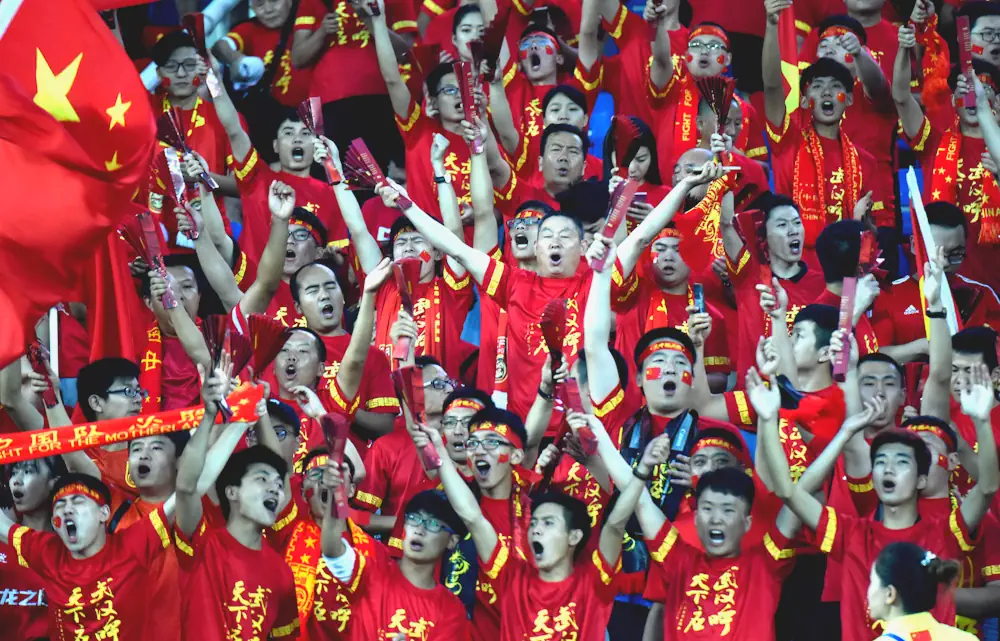The Chinese football bubble
Football is a global phenomenon that makes it the most popular sport on the planet. Almost anywhere in the world you can see people playing with a football. This makes it have an enormous impact on society and hence, in many cases, football is seen as an opportunity to invest in the pursuit of different objectives.
In any case, this is not the first time we have seen it since there are similar precedents such as Qatar and the MLS (american Major League Soccer), and especially China, which is the case most similar to the Saudi one. The Asian country spent billions in search of becoming a football power, something that at the moment does not seem to be on the right track.
The origin
The story began back in 2002, during the 2002 FIFA World Cup held in South Korea and Japan, which turned out to be a phenomenon on the Asian continent, among other things, for being the first World Cup organized in Asia. Specifically in China, there was also significant attention on the competition because it was the first time (and so far, the only time) that it participated in a FIFA World Cup.Football gained more popularity in China thanks to the World Cup, but the local league and clubs were facing many problems, which led to the re-foundation of the championship, taking the English Premier League as a reference, in 2004, the Chinese Super League was born. In this way, the aim was to have a more professional and structured football in the country that could lead to the sustainable growth of football.
The professionalism of Chinese football began to open the doors to foreign players and managers to a greater extent than had been seen up to that date and that helped to improve the quality of the beautiful sport in the country, although it did not live up to the expectations they had in mind. China. Hence, the government itself began to promote investment by Chinese companies in local football. This is how many companies, such as the Evergrande Group, one of the country's main companies, bought a football club, in its case, Guangzhou, in 2010.

Seydou Keita was one of the big signings in Chinese football
The league was beginning to be attractive to players in Europe from a financial point of view, for players who were not in the first level or figures in the final years of their career. However, in 2013, a corruption case was uncovered in Chinese football involving 33 people, including players and managers, which kept fans away from the stadiums. This was a setback to the progressive progress that Chinese football was taking and that is why the image needed to be changed to attract the public again.
The highest point
Between 2013 and 2015, players such as Alberto Gilardino, Paulinho, Robinho, Demba Ba, Tim Cahill and Eidur Gudjohnsen arrived, as well as managers such as Luiz Felipe Scolari and Sven-Göran Eriksson. However, it was in 2016 when Chinese football really hit the table as the clubs went to Europe to bring some outstanding players from the old continent and that is how Jiangsu Suning signed Ramires for 25 million euros, a record for that moment that, in just 10 days would be broken two more times, first with the 42 million from Guangzhou Evergrande for Jackson Martinez and then the 50 million from Jiangsu Suning for Alex Teixeira.As if this were not enough, in the middle of the year, Hulk would arrive at Shanghai SIPG (nowadays Shanghai Port) for 45 million and a salary of 16 million a year, making him one of the highest paid in the world. The case of Graziano Pellè stood out, whom, without being one of the best strikers in Europe, arrived at Shandong Luneng (today Shandong Taishan) with a salary of 17 million a year. Most of these players were being coveted by big European teams, such as Teixeira, who was close to signing for Liverpool, just days before leaving for China.
In that same 2016, Xi Jinping, president of China, presented a plan to turn the Asian country into one of the best in the world of football. The plan was to create 20,000 football schools that would accumulate 30 million students by 2020, establish the China female national team as one of the best in the world and the men's team as the best in Asia in 2030 and finally, be one of the best in the world. in 2050. With this, the clubs did not stop with their investments and Shanghai Shenhua signed Carlos Tevez from Boca Juniors, paying him 40 million a year, which made him the best payment in the world.
The fall
Between 2015 and 2017, the Chinese Super League was among the 5 football leagues that spent the most on transfers each year, competing head-to-head with the best in Europe. That pace of investment was clearly unsustainable and in 2018, the government itself began to establish certain restrictions that limited the amount of money that the companies behind the clubs invested. In this way, measures such as the salary limit and the 100% tax for transfers of foreign players arrived, which basically doubled the cost of the transfer fee for Chinese clubs when signing a foreign player.In 2020, COVID-19 had a huge impact on the companies behind the clubs and this ended up sinking Chinese football, to the point that, for example, Jiangsu Suning, which became champion of the Super League in that same 2020, disappeared in February 2021 because Suning Holdings Group, the company behind the club, was going through many financial difficulties. Likewise, studies showed that 12 of the 16 teams in the league had debts with the payment of their players, in addition to the fact that until 2022, the country continued to report cases of COVID-19, which made it difficult for Chinese football to have any renaissance.
In 2023, most of China's first tier clubs have been sanctioned by the AFC (Asian Football Confederation) for non-payments. Another example of the fall of football in China was the relegation of Guangzhou Evergrande at the end of 2022, after the club was champion 8 times between 2011 and 2019 (being second in the only championship it did not win) and could have players and managers top. With this scenario, Chinese football clubs have let their main foreign figures go and have had to concentrate on using players from their youth teams in order to maintain their first teams.
In this way, the league has lost the attraction it had for players and managers from the European first tier, something that affects the competitive level of the tournament and in turn, this affects the growth of Chinese football players, slowing down the progress of the national team.
